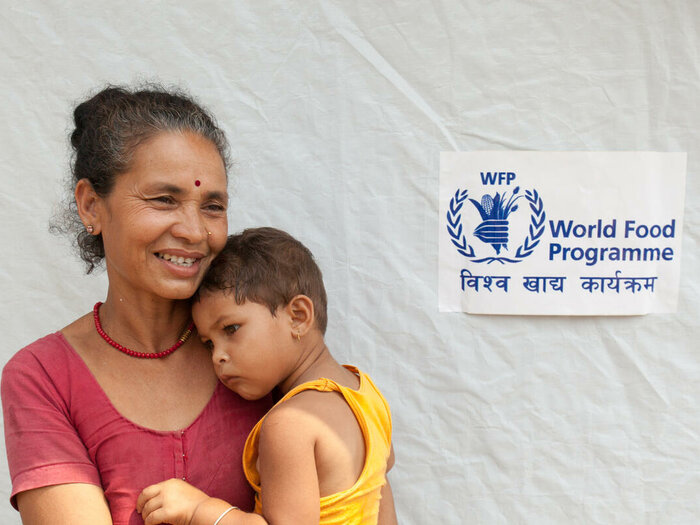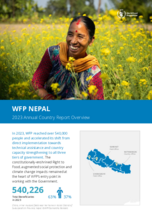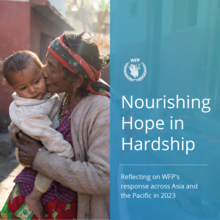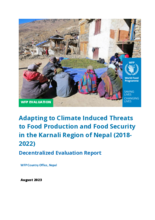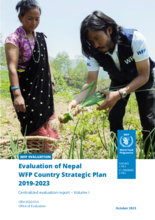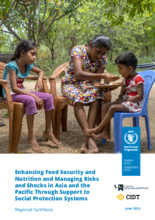Nepal
- 36%
- of children under 5 are stunted
- 25%
- of people live on less than US$ 0.50 per day
- 28.5 million
- population
Nepal ratified its new constitution in 2015 in a peace process that restructured the country as a federal democratic republic following a decade-long conflict that ended in 2006. This process created a stable government for the first time in 25 years and an enabling environment to make much needed progress toward the achievement of the Sustainable Development Goals (SDGs) by 2030. The 2018 Right to Food Act enshrines food as a fundamental right of every citizen, a powerful step toward meeting Nepal’s commitments to rid the country of malnutrition, hunger and food insecurity. However, the Zero Hunger Strategic Review (ZHSR) conducted in 2017-18 found that the country still suffers from severe food insecurity and malnutrition.
What the World Food Programme is doing in Nepal
-
Food and nutrition during emergencies
-
WFP supports the Government of Nepal’s emergency response efforts during disasters and other shocks to ensure that those affected have immediate access to adequate food and nutrition. In addition, WFP provides recovery support through food and cash assistance to vulnerable communities as they build assets and restore livelihoods in the aftermath of disasters.
-
Improve nutrition
-
WFP supports government efforts to prevent and manage malnutrition by providing nutritious school meals to children in chronically food-insecure areas and health packages to children under 5 and pregnant and breastfeeding women and girls. WFP is also working closely with the government to integrate the School Meals Programme into the national social protection framework and make a fortified harvest available to both schools and the broader population.
-
Risk reduction and capacity development
-
WFP provides technical assistance on national food security monitoring and analysis at federal and provincial level to ensure delivery of efficient and equitable assistance during crises. WFP strengthens government emergency response capacity through establishing critical logistics infrastructure, capacity building of first responders and flood early warning systems. WFP produces regular reports on household food security, food prices and agriculture in Nepal, providing early warning of emergencies.
-
Sustainable food systems for climate vulnerable and food-insecure communities:
-
WFP helps food-insecure communities to benefit from critical infrastructure that improves their access to basic services. WFP also supports climate vulnerable communities, particularly farmers in the central Terai districts, in preparing for, withstanding and better recovering from shocks. This includes developing climate-resilient community infrastructure, improving food processing and storage to overcome lean-season shortages, enhancing agricultural productivity and preparedness for climate shocks, and setting up early-warning systems.
-
Policy coherence on food, security and nutrition:
-
WFP enhances food security and nutrition policy coordination at the federal, provincial and local levels of government, strengthening capacity to deliver on the goal of Zero Hunger. WFP works with local governments to strengthen food security governance and promote the crucial link between evidence and policy. WFP also engages UN agencies to ensure a coordinated approach to how international actors are supporting food security policy coordination in Nepal.
Nepal news releases
Go to pagePartners and donors
Find out more about the state of food security in Nepal
Visit the food security analysis pageContacts
Office
P.O. Box No 107, Chakupat, Patan Dhoka, Lalitpur, Kathmandu, Nepal
Kathmandu
Nepal

